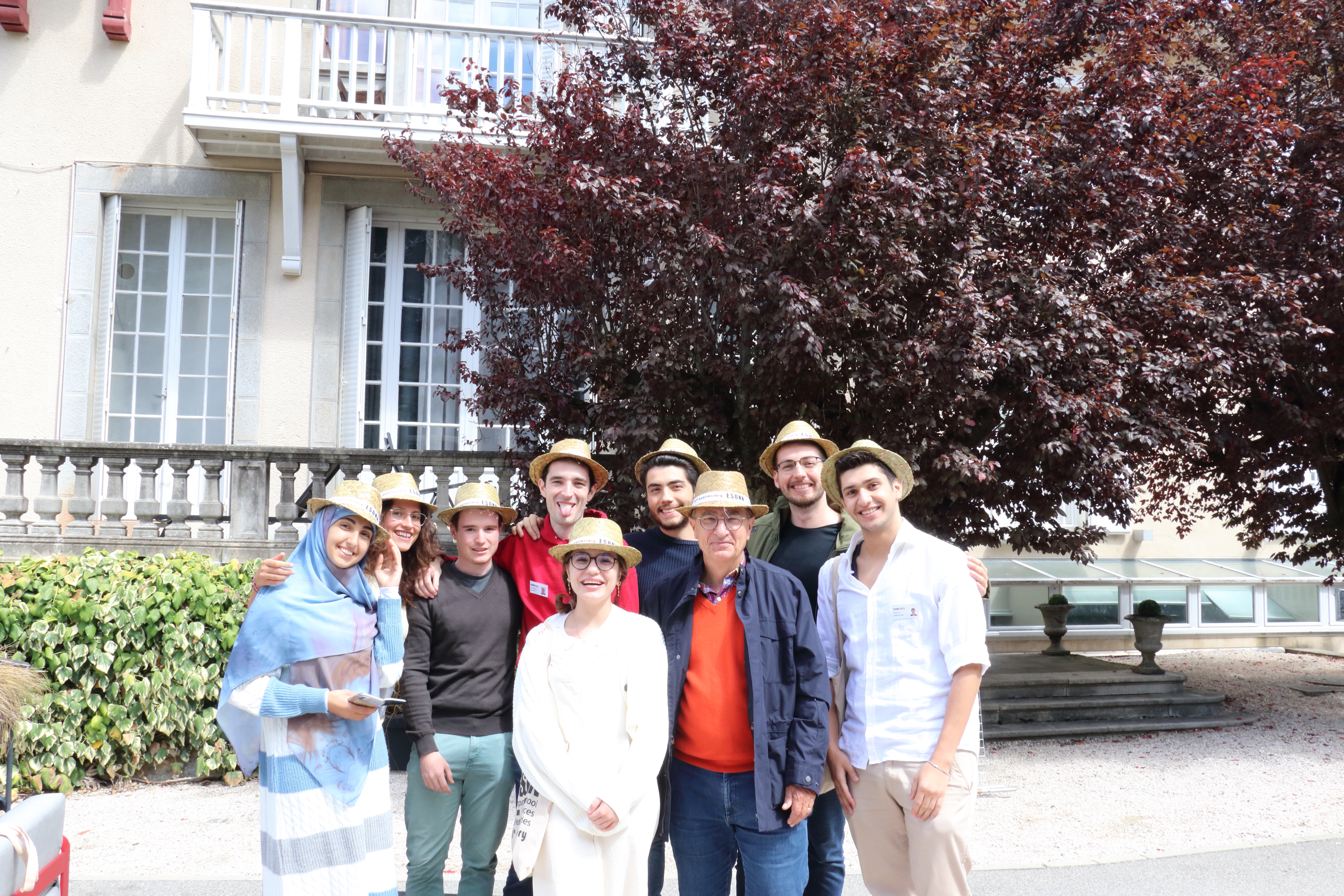
The Graduate School thematic program Soft-Nanosciences gathers 15 research labs and 6 master programs in the fields of soft matter, biophysics, chemistry and applied mechanics, to set up an innovative research-driven curriculum.
In this section
The program Soft Nano of the UGA Grad School
Nanoscience has become a multidisciplinary field where soft materials are of immense interest. The self-driven organization of materials from the molecular scale into complex assemblies ensuring smart functionalities, opens a promising route toward new applications in the field of biotechnology, environment and energy. As an example, the capture of CO2 by nanoporous materials, new devices based on the physics of membranes for harvesting blue energy, are future applications that already pose fascinating interdisciplinary questions, at the cross-roads of fundamental physics, chemistry and fluid mechanics, to scientists today.
The Graduate School program Soft Nanosciences builds on regular Master's tracks where you should be enrolled first (see the list below). In addition to the Master's curricula, the Graduate School program offers a selective training of excellence through research, covering the wide spectrum of soft nanosciences. Top-level students engage in PhD-track Master's studies with the strong and continuous support of research teams along the following lines:
• Every Master's student joins a research team and performs a 2-year-long research work under the guidance of a research director.
• Every M1 student (master 1st year) follows the course "Research Methodology" and is trained to scientific writing (paper, research proposal)
• Every M2 student (master 2nd year) participates to the European school ESONN and gives an oral presentation of his/her research to an international scientific audience
• All curriculum is in english language
• PhD students benefit of an additional teaching mission and contribute to the networking of the program.
Possibility of financial support:
• International student can apply for a Master's scholarship (amount €8000 each school-year) awarded by the GS@UGA on a competitive basis. Contact the program coordinator.
• French student can benefit of an outgoing mobility scholarship for performing a research internship abroad (2000€ for an internship of 2 months minimum, 3000€ for 4 month minimum).
To join the Graduate School program Soft Nano, follow the procedure given in the section Admission.
Curriculum
Students enter the Graduate School as 1st year Master's students in one of the 1st year majors covered by the Soft Nanosciences program: Soft Matter and Biophysics, Nanochemistry, Applied Mechanics, Biomedical Engineering (Phelma 2A). Students immediately integrate a research team affiliated to the program in order to undertake a research project related to soft and complex matter at the nanoscale, in parallel to the compulsory courses of their respective master. They validate some modules which are specific to the Soft Nanosciences program:
(*) students performing their semester abroad and Phelma students do not take this course
A significant amount of time is devoted to research credits (from 2 days a week to full time). As a consequence, students in the Soft Nanosciences Graduate School program take less elective courses than in the standard Master's curriculum. As interns in a research team, they receive an internship stipend.
See Research project offers.
At the end of the 2nd year, students obtain a Master's degree in one of the specialities: Soft Nanosciences, Nanobiotechnologies, Nanomedecine, Nanochemistry, Environmental Fluid Mechanics, Polymers for Advanced Technologies. They can pursue in PhD in the Doctoral School of Physics, Chemistry and Life Sciences, or IMEP2 (Industrial, Materials, Mechanics, and Process Engineering) of the UGA, or they can choose to quite the Graduate School at the level of the Master and pursue a professional life and/or a PhD in another university or abroad.
See PhD offers
Training through and for research
A first professional experience
The Graduate School program Soft Nanoscience provides students with the opportunity to be immersed in a highly demanding scientific environment where the innovation of the future is in gestation. It also gives students a first professional experience. From the beginning of their master, students become a member of a laboratory or research institute, take a full part to the life of the lab according to their time of presence, have access to high-tech facilities after having received appropriate training, comply with safety regulations, and assume their share of collective tasks. They also follow the scientific seminars, getting opportunities to take contacts for continuing in PhD.
During their research internship students receive a
stipend whose amount is set by the French law.
A formation for research
The training through research covers all aspects of leading a project. In the fall semester of the 1st year students are trained to write and to defend a research proposal. They devote to this activity up to 2 days a week, confronting their progress with other students in regular meeting of all the group (
Research Methodology, 6 credits).
Student then develop their research project during the three subsequent semesters, in parallel to the courses, or at full time. At the end of the first year (
Research Project, 12 credits) they are evaluated through the realization and defense of a poster, to be presented at the poster session of the
ESONN school. At the end of the 2nd year they are evaluated through the submission and defense of a
Master Thesis (30 credits). Having performed a significant research work, they may have the opportunity to write a scientific article or present their results in a workshop of specialists of their field. They are fully prepared to continue in PhD or in a carrier of research and development.
Research projects of 2022-2024 students
Research projects of 2021-2023 students
International networking
Taking part to the
European School in Nanosciences and Nanotechnologies at the very beginning of the 2nd year, students meet international professors, PhD students, and junior scientists. In addition to being trained in the leading-edge research on nanostructures, nano-objects and nano-machines, they present a poster on their master research activity, and they get an opportunity to start international professional networking in their domain.